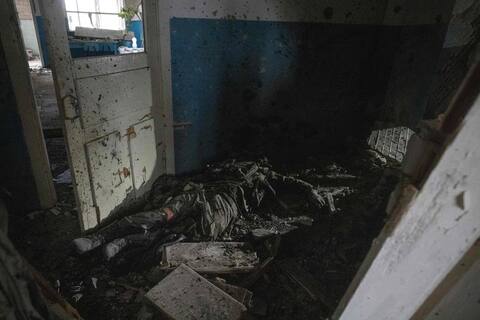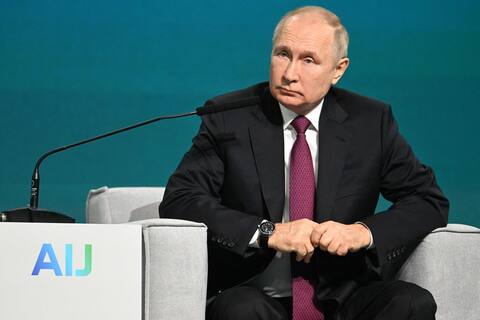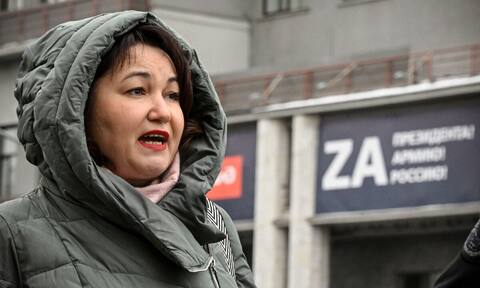
For weeks, their videos have flooded the Russian-speaking Internet: mothers and wives of Russian soldiers mobilized to fight in Ukraine gather across Russia to demand President Vladimir Putin fulfill his promises.
• Read more: The head of British diplomacy in Ukraine announced new aid
• Read more: Poland orders two spy ships from Sweden
After the Kremlin ordered a partial demobilization in September, it promised hundreds of thousands of conscripts would undergo solid training, receive better equipment and not be sent to the front lines.
But several violations were recorded: death before mobilization; mobilizing unfit men, fathers of large families, or the very old; Many veterans lack adequate equipment and military training.
The irregular demobilization, which pushed officials to admit “mistakes,” spread anxiety among relatives of soldiers sent to Ukraine.
This concern, which risks eroding into discontent, puts the Kremlin in a delicate situation: if the authorities relentlessly suppress any question about the attack in Ukraine, the word of soldiers’ wives is sacred and their imprisonment would shock Russia.
As a sign that the government is taking this seriously, Mr. Putin is due to meet the mothers of soldiers deployed to Ukraine for the first time on Friday. But some relatives are already anticipating a carefully choreographed meeting without discussing the merits.
Mr. Olga Tzukanova, the mother of a young man who is doing his military service, regrets that Putin “meets mothers from his sleeve, who, as always, ask relevant questions and thank him.”
“Vladimir Vladimirovich, answer our questions!” “This woman wants to make sure her 20-year-old son isn’t sent illegally to the front or to the Ukrainian border, where the bombs are falling,” says the woman.
She made a special trip to Moscow from the city of Samara, 900 km to the east, hoping to be received by the Kremlin. in vain “I imagine they’re afraid we’ll ask awkward questions. But we have to solve the problem!”
Ask for accounts
The Russian president knows how sensitive the issue of soldiers’ relatives is.
When the Russian submarine Kursk sank in August 2000, killing 118 of its crew, he was heavily criticized and accused of slow reaction. Then he gave the first twist to the media.
During the two wars in Chechnya, the movement of soldiers’ mothers embarrassed those in power and reinforced a sense of discontent throughout Russian society.
This time, facing an environment of heightened repression, the protests of soldiers’ wives and mothers did not directly question the attack in Ukraine, but some condemned the conditions in which their relatives were sent there.
Their status as mothers and wives of conscripted men who went to serve the country gives them legitimacy and protection against persecution, making them less likely to be treated as ordinary enemies.
In Russian society, “there is an unconscious sense that women have rights,” notes Alexey Levinson, a sociologist at the independent Levada Center.
These women are “demanding that the government fulfill the function of the collective father of its ‘mobilized’,” she adds. “When the government or the military commander does not fulfill their duties, the women demand rights.”
For now, the movement is diverse, not integrated. Calls from grieving relatives are broadcast on social networks, where informal groups gather around figureheads.
This is the case of Olga Sukhanova
In an environment of intense repression, other women fear that by speaking to the press they will get into more trouble or worsen the situation of those close to them, especially foreigners.
“We have sent official letters to the authorities,” one of them wrote to AFP on condition of anonymity. “It’s not the journalists who are going to get our men out of the trenches, and we don’t want to cause them any trouble. »
Putin says he “shares their pain”.
Russian President Vladimir Putin on Friday called on the mothers of soldiers stationed in Ukraine to “share the pain” of those who lost their sons, calling on them not to believe the “lies” of the military operation.
“I want you to know that I, personally, and all the leaders of the country, share this pain. We know that nothing can compensate for the loss of a son,” Putin said sternly.
Mother’s Day, which is celebrated in Russia on Sunday, will this year be marked by a “sense of concern and care”, he said, among concerned women, whose “thoughts are with their men”.
He is speaking in front of women presented by the Kremlin as mothers of soldiers fighting in Ukraine, Mr. Most of them showed covered faces.
Mr. Putin and Russian officials rarely mention Moscow’s losses in Ukraine.
The meeting with the soldiers’ mothers comes weeks after relatives of the men who were mobilized to fight in Ukraine at the beginning of the fall posted on social networks an unprecedented situation since the start of the offensive.
Many wives and mothers of the men alleged that the authorities did not provide adequate training or equipment before sending their relatives to the front line.
“Life is more complicated than what you see on TV or on the Internet, you can’t believe anything. There is a lot of disinformation, deception, lies,” Putin told the players’ mothers.
“It has always been there, but taking into account modern technologies, it has become more noticeable and effective,” he added, condemning “information attacks”.
The development echoes laws passed in Ukraine after the offensive began, which impose stiff prison sentences for those accused of spreading “false information” or “discrediting” the military.








More Stories
More than 200 former Republican aides back Kamala Harris | US Election 2024
An investigation into the ill-treatment of the Lev Tahor sect in Guatemala
Brossard is suspected by the US of supporting Russia’s war effort